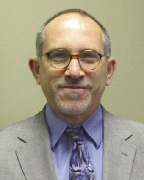"We know that leadership is very much related to change. As the pace of change accelerates, there is naturally a greater need for effective leadership." - John Kotter
The rapid changes we are facing in the housing and economic markets have left many people looking for direction and answers. In Rhode Island, where housing foreclosures and real estate values are signs of greater economic difficulties, there are influential professionals from many sectors providing effective leadership and direction, not only in their own circles of responsibility but in the greater community. Three of Rhode Island's leaders from different segments of the real estate community indicate that progress is being made amidst a growing sense of cooperation and purpose. Through their efforts, they are defining the qualities of leadership, and more importantly are helping others develop those same skills.
As CEO of the Greater Providence Board of Realtors, Michele Caprio manages the states oldest and largest local Realtor association. A recipient of many awards and recognitions, Caprio makes clear that leadership cannot be defined as financial success. "Leaders", she states, "are made, not born". Success comes easily in hot markets, but it is the constant process of professional development and taking the long-term, cyclical view that leads to success. Still, she states, leadership is defined by something bigger. A leader "changes the paradigm" of their practice towards a responsibility that benefits the client, the profession and the community rather than a sole focus on sales.
This, explains Caprio, is an important role of professional associations like GPBOR. They exist to enhance the skills and professionalism of their members, noting that Rhode Island has the most stringent education requirements amongst the neighboring states. Similarly, Realtor associations play a large role in partnering real estate sales professionals with government, citizens and business groups. Real estate, she concludes, is a "reputation" business. Her leadership skills come from the ability to communicate these views not only to her members, but also to the larger business and civic community in demonstrating that professionalism, integrity and consensus building are true characteristics of success.
Consensus building is at the heart of the effort of John Flaherty and GrowSmartRI, a non profit organization dedicated to research, advocacy and sustainable growth with a wide variety of community stakeholders. Flaherty, director of research and communication, states that diminishing resources and tough economic times are bringing more citizens, business owners and others to the table. They more frequently share the same objective-"what do I need to do to get the deal done?" A positive result of this collaboration is greater emphasis on sustainability and less on motives for immediate profit. Flaherty notes alliances of groups like Rhode Island Housing, chambers of commerce, Realtors, developers, bankers and government. Though seemingly "unlikely bedfellows", he states that nevertheless they are effectively addressing issues like transportation, water supplies, building tax credits and zoning. This coming together of leadership, he states, almost always results in win-win situations. For example, Flaherty notices Realtors and builders are responding positively to efforts like those of SmartGrowthRI, and recognizing the long term economic and social value of this approach.
Rob Scaralia, in multiple roles as owner of two real estate businesses and president of the Rhode Island Association of Realtors, has a unique view on this, but echoes the change in paradigms stated by Caprio and Flaherty. Both the role and the definition of leadership, he says, have changed with to recent challenges. Scaralia said that leadership cannot maintain the status quo. Constant growth and vision are essential for all industry leaders and professionals. Leadership comes from two traits, he notes: character and competency. "No mariner has ever gained skills in calm seas" and the leadership in Rhode Island's real estate community must educate both its practitioners and the public about not only the opportunities in real estate, but also in setting expectations about pricing, investment potential and risk.
Scaralia also notes the importance of leaders of different factions of the real estate industry in forming consensus. He notes the RIAR collaborations with groups like Rhode Island Housing on their "BuySmart" campaign, designed to educate consumers regarding real estate purchases. He views the responsibility of professional groups in leading all stakeholders to a more cohesive and long term view of the real estate market to create not only profit, but also long term economic and social viability.
While the Rhode Island and the national real estate markets experience significant change and upheaval, it is clear that behind the efforts of Flaherty, Caprio and Scaralia, and their leadership partners throughout the real estate community that Rhode Island has much to be optimistic about as we face the challenges of today.
John Torvi is the director of marketing & sales for The Herbert H. Landy Insurance Agency, Needham, Mass.
Tags:








